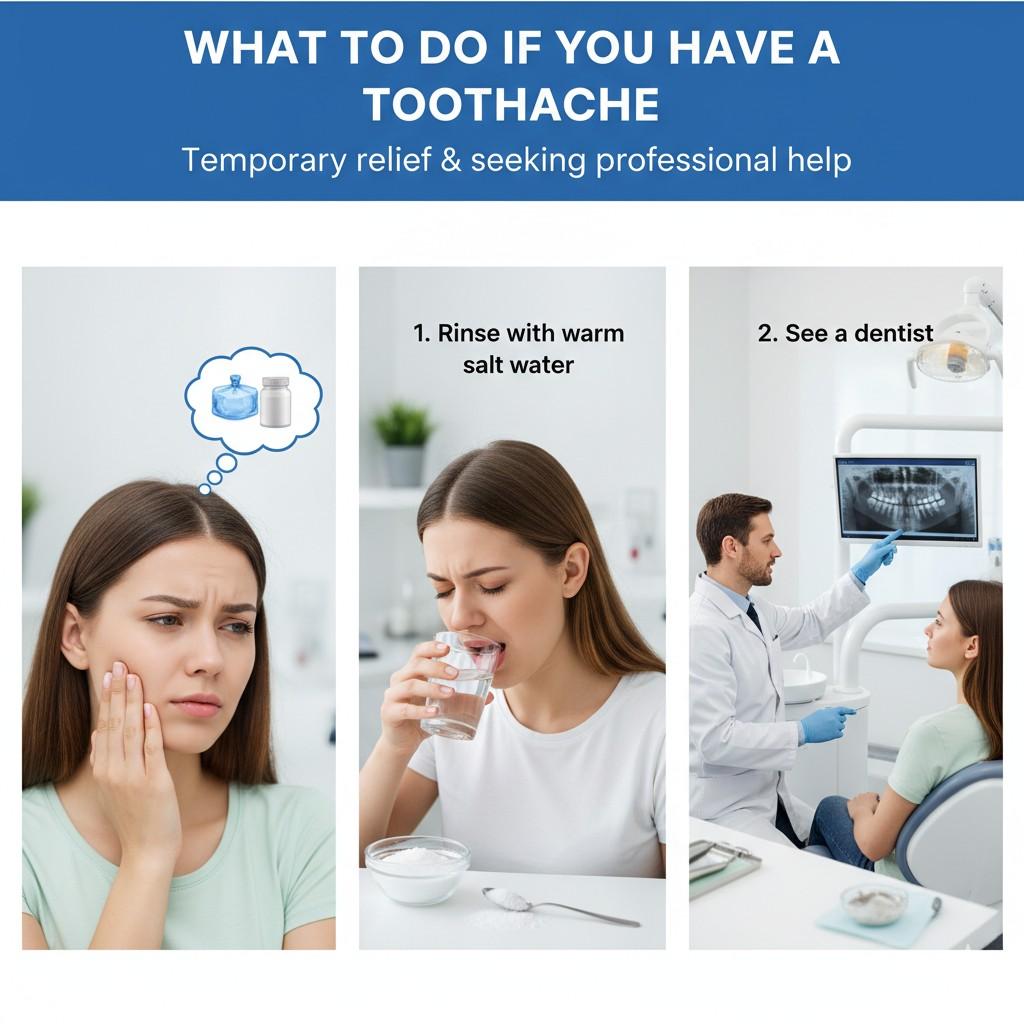Toothaches are one of the most common dental problems and can be incredibly uncomfortable and distressing. Whether it’s a dull ache or sharp, intense pain, a toothache signals that something isn’t quite right in your mouth. At Saranya Dental, we understand how painful and disruptive a toothache can be, and we’re here to help you know exactly what to do when the pain starts.
Understanding the Causes of a Toothache
Before we dive into what you should do, it helps to understand why toothaches happen. Common causes include:
- Tooth Decay: Cavities caused by bacterial infection that damage the enamel and reach the nerve.
- Gum Disease: Inflammation and infection of the gums that can cause pain and sensitivity.
- Tooth Abscess: A severe infection at the root of the tooth or between the gum and tooth.
- Cracked or Damaged Tooth: Trauma or biting down on something hard can crack a tooth and cause pain.
- Dental Procedures: Sometimes pain occurs after dental treatments like fillings or crowns.
- Sinus Infection: Occasionally, sinus pressure can cause pain in the upper teeth.
Knowing the cause helps determine the urgency and type of treatment needed.
Immediate Steps to Take When You Have a Toothache
If you suddenly develop a toothache, here are some important steps to take before visiting your dentist:
- Rinse Your Mouth with Warm Salt Water: Salt water helps reduce inflammation and cleans the affected area. Mix about half a teaspoon of salt in a cup of warm water and gently swish it around your mouth for about 30 seconds before spitting it out. Repeat a few times a day to soothe your gums and reduce bacteria.
- Use Over-the-Counter Pain Relievers: Pain relievers such as ibuprofen or acetaminophen can help manage the pain and reduce inflammation. Be sure to follow the dosage instructions on the label. Avoid placing aspirin directly on the tooth or gums, as it can burn the tissue.
- Apply a Cold Compress: If the pain is accompanied by swelling, apply a cold compress or ice pack wrapped in a cloth to the outside of your cheek near the painful area for 15-20 minutes at a time. This can help reduce swelling and numb the pain.
- Avoid Very Hot or Cold Foods: Extreme temperatures can worsen tooth sensitivity. Stick to lukewarm foods and drinks until your toothache subsides or you can see a dentist.
- Avoid Chewing on the Affected Side: Try to chew on the opposite side of your mouth to prevent further irritation or damage to the painful tooth.
- Check for Food Trapped Between Teeth: Sometimes food lodged between teeth can cause irritation and pain. Gently floss around the painful tooth to see if removing trapped debris alleviates the discomfort.
When Should You See a Dentist?
While these home remedies may provide temporary relief, it’s important to remember that a toothache often signals a problem that needs professional treatment. You should schedule an appointment with Saranya Dental if:
- The toothache lasts more than one or two days.
- The pain is severe or worsening.
- You experience swelling in your face or gums.
- You have a fever or general feeling of illness.
- You notice pus or discharge around the tooth.
- There is difficulty breathing or swallowing.
- The toothache follows an injury or trauma.
Delaying dental care can allow infections to spread, potentially leading to serious complications.
What to Expect at the Dentist
At your appointment, your dentist will perform a thorough examination, including:
- Reviewing your symptoms and dental history.
- Examining your teeth, gums, and mouth.
- Taking X-rays to identify decay, abscesses, or other underlying problems.
Based on the diagnosis, treatment options may include:
- Filling Cavities: Removing decay and filling the tooth.
- Root Canal Therapy: Cleaning out infection from the tooth root if the nerve is affected.
- Gum Treatment: For infections or gum disease.
- Extraction: Removing a severely damaged or infected tooth.
- Antibiotics: Prescribing medication if there is a spreading infection.
Your dentist will discuss the best treatment plan and pain management options to restore your oral health and comfort.
Preventing Future Toothaches
The best way to avoid toothaches is through consistent dental care and healthy habits:
- Brush twice daily with fluoride toothpaste.
- Floss daily to remove plaque between teeth.
- Limit sugary and acidic foods and drinks.
- Visit Saranya Dental regularly for professional cleanings and checkups.
- Wear a mouthguard if you play contact sports.
- Avoid using your teeth to open packages or bite hard objects.
Final Thoughts
A toothache can be a warning sign of serious dental issues that require prompt attention. While home remedies can provide relief, they are only temporary solutions. If you’re experiencing persistent or severe tooth pain, don’t wait—contact Saranya Dental as soon as possible for a comprehensive evaluation and treatment.
Taking early action not only relieves pain but also protects your teeth and overall health. Remember, your smile is precious, and at Saranya Dental, we are here to keep it healthy and pain-free.

